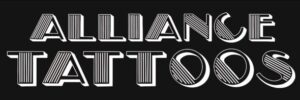Know your rights as a professional tattoo Artist. Know your legal boundaries as a shop owner.
These classifications can be confusing. Are you an employee, or are you self-employed? What are the differences between the two, and where do booth renters and independent contractors fit in?
This article outlines some common misconceptions and abuses that all tattoo professionals should be aware of, and it will let you know what your legal rights are within the studio.
The most common misclassification given to artists within tattoo shops, is the title of:
Independent Contractor
THE “INDEPENDENT CONTRACTOR” TITLE RARELY BELONGS IN A TATTOO SHOP.
99% of independent contractors are illegally misclassified in the tattoo business. Because, most artists work primarily out of one location. There is no legal independent contractor classification that applies to artists working in a permanent or semi-permanent workspace. As an Artist working primarily out of one shop, you’re either an employee, or a self-employed booth renter.
Independent contractors are self-employed, just like renters. However they do not go to work every day, all day, at the request of the shop owner. Much like a renter, independent contractors operate independently, typically out of several different locations.
These traveling artists are not leasing space anywhere, nor are they on anyone’s payroll. They often do “guest spots” and work the convention circuit. They may pay a chair fee or rent a booth temporarily, but the main requisite for this classification is that they do not work in one primary location.
When exploitative owners classify artists as being “independent” they are telling the IRS they are self-employed. Meaning that the artists are responsible for paying their entire employment tax. Whereas, as an employee, your employer is responsible to pay half of your income tax. So instead of paying 7.5% of their income, artists will end up paying at least 15.3% of what they earn to the IRS at the end of the year. There are some shop owners who aren’t aware that this practice is illegal, but the IRS does not care. As a Business owner you are expected to do your homework and make informed business management decisions.
AS A WORKER, YOU ARE NOT EXPECTED TO SUFFER FOR ANYONE ELSES FAILURE OR INABILITY TO PERFORM THEIR DUE DILIGENCE.
Shop owners utilize the independent contractor classification to avoid wage and labor compliance.
When a person is self-employed, they’re generally not eligible for worker’s compensation, unemployment, the required minimum wage, overtime wages, federal protections against workplace discrimination and retaliation, or any of the other benefits they would be entitled to if they were employees.
Misclassification of employees as independent contractors is a crime.
State and federal governments take tax evasion, wage theft, and labor abuses very seriously. They take them so seriously they will team up and perform joint investigations.
Employee
Employees are also very rare in the tattoo business, because, it doesn’t work. In any employment arrangement, an employee is not required to invest any money into the business.
So, an employee/employer tattoo shop would require that the shop (or shop owner) provide everything from tools and equipment – to supplies and advertising. Artists would have to be paid a salary or hourly wage, commission, or some combination of both.
What is an employee’s role?
Employees are required to follow their employer’s directives. This means employees must:
- Work the employer’s schedule,
- Adhere to shop policies and dress codes,
- Use whatever products the shop requires them to use and perform services in accordance with the shop’s protocols.
Employees are also required to participate in promotional events (discounts, coupons, etc.), continuing education, and mandatory meetings.
Who collects the money?
An employee’s clients pay at a centralized location, usually at a reception desk. Aside from tips, employees are never paid directly by customers.
Who controls the client contact information and the appointment book?
The employer is legally entitled to control and retain the salon’s client contact data and may prohibit employees from taking that data or using it to harm the business.
The employee classification just doesn’t fit in tattooing. An artist must have full control over how they render their artwork, what particular products and equipment they prefer to use, they must maintain the right to decline any service as they see fit, and have the ability to set their own prices.
In fact there is only one classification that legally fits in the tattoo business. Shop owners own a booth rental service – and the artists are:
Booth Renters
BOOTH RENTERS ARE SELF EMPLOYED.
What does it mean to be “self-employed” in the tattoo industry?
IF YOU ARE SELF-EMPLOYED, YOU ARE A BUSINESS OWNER.
Booth renters run their own businesses and are completely independent from the rest of the shop. They are commercial tenants who lease space within a studio facility.
Booth renters are entirely responsible for acquiring new clients, providing their own supplies, securing their own benefits, and paying their own taxes.
What is the role of a self-employed booth renter?
Booth renters keep 100% of their income, pay for their own product and supplies, set their own prices, and work on their own schedule at their own convenience. They answer to no one.
Who collects the money?
Clients pay renters directly. Under no circumstance should a client of a self-employed booth renter be paying a shop landlord, nor should the booth renter be receiving a “paycheck” from their landlord.
Who controls the client data?
Booth renters are solely responsible for booking their own customers and maintaining their client data. No one else is entitled to that information, nor can anyone require them to turn that data over (for instance, as a condition of their rental agreement).
Can a booth renter be fired?
Renters cannot be fired. They must be properly evicted in accordance with the lease agreement or the state’s commercial landlord/tenant laws.
TO A RENTER, A SALON OWNER IS NOTHING MORE THAN A LANDLORD.
It’s important for shop landlords to understand that they cannot:
- Dictate a booth renter’s schedule,
- Force the booth renter to have their clients pay for their services at a centralized location (like a reception desk),
- Tell a booth renter what products to use, how to perform a service, or what to charge for their services,
- Force a booth renter to participate in a promotion or coupon unless agreed upon in writing.
- “Fire” a booth renter,
- Force a booth renter to adhere to a dress code or other shop guidelines or rules, or
- Require the booth renter to use the shop’s branding or promote the shop’s name in any of their marketing materials.
Do renters get benefits?
Booth renters must secure their own benefits. In addition to being ineligible for benefits, booth renters are also not provided any state or federal protections from agencies like the Department of Labor or the Equal Employment Opportunity Commission.
What are renters entitled to?
Renters are only entitled to whatever their written lease agreement guarantees them. Renters are not entitled to free rent for vacation time, or anything other than the space they are paying for. Additionally, shop landlords are not required to provide renters with a clientele.
The only way this pervasive abuse stops is if we stop allowing it to happen. If a shop owner has misclassified you, approach them respectfully about correcting their practices before it’s too late.


Michael did my first tattoo and my second they both came out amazing will definitely be going back